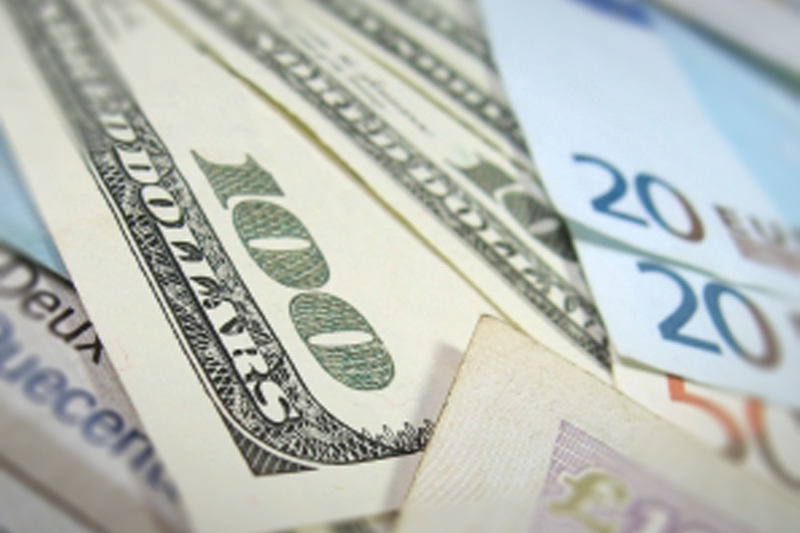Investing.com - The euro was steady close to almost four month lows against the greenback on Thursday as investors looked ahead to U.S. reports on retail sales and initial jobless claims later in the session.
EUR/USD was trading at 1.3536, not far from the four-month low of 1.3502 set last Thursday.
The pair was likely to find support at 1.3500 and resistance at 1.3601, Tuesday’s high.
The euro has weakened broadly since the European Central Bank cut all its main rates to record lows last Thursday and imposed negative deposit rates on commercial lenders for the first time, in a bid to stave off the risk of deflation in the euro zone.
The single currency showed little reaction after official data showed that industrial production in the region rose 0.8% in April, ahead of forecasts for a 0.4% increase.
Market participants were looking ahead to reports on U.S. retail sales and jobless claims, due for release later Thursday after recent data has indicated that the economy is shaking off the effects of the severe winter.
The euro fell to fresh one-and-a-half year lows against the pound, with EUR/GBP down 0.20% to 0.8043, the weakest level since December 2012. Sterling was boosted after an upbeat U.K. jobs report on Wednesday bolstered expectations that the Bank of England will hike rates sooner than expected.
The single currency fell to its lowest level in 13 months against the New Zealand dollar on Thursday after the country’s central bank raised its benchmark interest rate to a five-year high of 3.25% and indicated that rates would rise again as strong economic growth fuels inflation pressures.
EUR/NZD fell to lows of 1.5586, the weakest since mid-May 2013 and was last down 1.47% to 1.5614.
The euro was close to four month lows against the yen, with EUR/JPY at 138.05, after falling to lows of 137.86 on Wednesday, the lowest since February.
Elsewhere, the dollar was little changed against the yen, with USD/JPY at 102.06, holding above the more than one-week low of 101.85 struck in the previous session.
The yen remained supported after the World Bank cut its forecast for global economic growth to 2.8% for the year from 3.2% in January on Wednesday, warning that an unusually harsh winter along with the conflict in Ukraine would act as a drag on growth.
